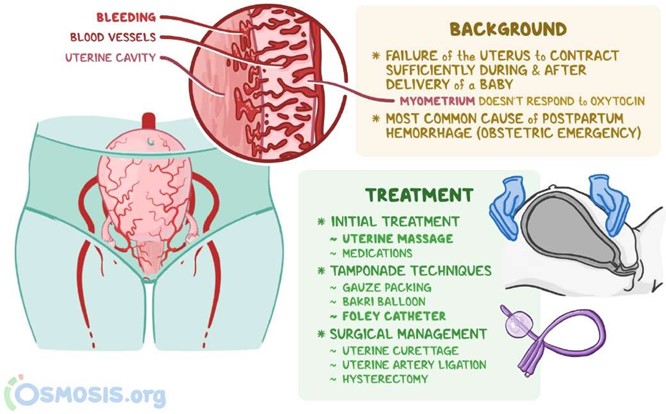A nurse is caring for a client who has preeclampsia and is receiving magnesium sulfate.
Which of the following clinical findings should the nurse instruct the client to report?
Increased muscle weakness.
Increased fetal movement.
Increased respiratory rate.
Increased urinary output.
Increased urinary output.
The Correct Answer is A
Magnesium sulfate is used to prevent seizures in women with preeclampsia.
However, taking too much magnesium can be life-threatening to both mother and child.
In women, one of the most common symptoms of magnesium toxicity is muscle weakness12.

Choice B is not an answer because increased fetal movement is not a symptom of magnesium toxicity.
Choice C is not an answer because increased respiratory rate is not a symptom of magnesium toxicity.
Choice D is not an answer because increased urinary output is not a symptom of magnesium toxicity.
Nursing Test Bank
Naxlex Comprehensive Predictor Exams
Related Questions
Correct Answer is ["B","C","D","E"]
Explanation
Applying counterpressure to the sacral area can help alleviate back pain during labor.
Ambulating the client in the hallway can help with pain management and facilitate labor progress.
Administering nitrous oxide mixed with oxygen can provide pain relief during labor.
Having the client sit upright can help with pain management and facilitate labor progress.
Choice A is incorrect because performing Leopold maneuvers is a technique used to assess fetal position and presentation and is not a pain management technique.
Correct Answer is C
Explanation
Retained placental fragments is a risk factor for postpartum hemorrhage. After delivery, the uterus continues to contract to deliver the placenta.
Contractions also help to compress the blood vessels where the placenta was atached to the uterine wall.
Postpartum hemorrhage can happen if parts of the placenta stay atached to the
uterine wall.

Choice A is incorrect because pregnancy-induced hypertension is a risk factor for
postpartum hemorrhage.
Choice B is incorrect because meconium-stained fluid is not mentioned as a risk factor for postpartum hemorrhage in my sources.
Choice D is incorrect because oligohydramnios is not mentioned as a risk factor for postpartum hemorrhage in my sources.
Whether you are a student looking to ace your exams or a practicing nurse seeking to enhance your expertise , our nursing education contents will empower you with the confidence and competence to make a difference in the lives of patients and become a respected leader in the healthcare field.
Visit Naxlex, invest in your future and unlock endless possibilities with our unparalleled nursing education contents today
Report Wrong Answer on the Current Question
Do you disagree with the answer? If yes, what is your expected answer? Explain.
Kindly be descriptive with the issue you are facing.
